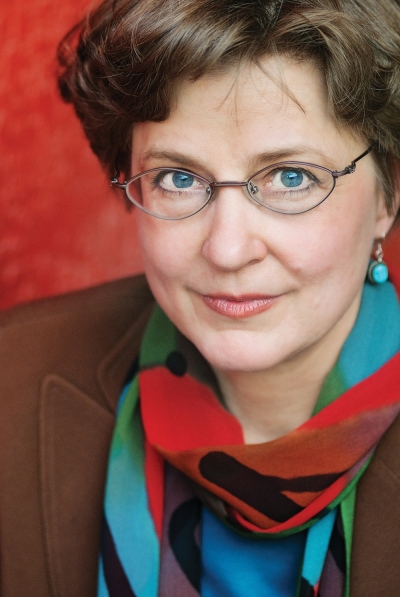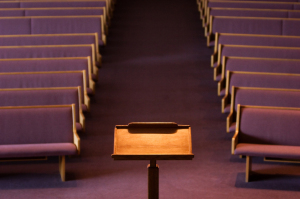Christian apologist reveals how God changed her feminist views on masculinity

After suffering physical abuse from her father, Christian apologist Nancy Pearcey, an author and professor of apologetics at Houston Christian University, said it was only natural that she would succumb to feminist ideology as a young woman before returning to her Christian faith at L'Abri, an apologetics ministry started by Francis Schaeffer.
Speaking with Jason Jimenez during a recent episode of his “Challenging Conversations” podcast on the Edifi Podcast Network, Pearcey said she credits God for helping her come to grips with the idea that masculinity is not “dangerous or destructive,” but should be embraced by all through a biblical lens.
Secular masculinity, which stems from Darwinism and is "predatory," is far different from biblical manhood, which means men have "headship" of the home and are the family's spiritual leader, she added. This "headship" entails setting an example for the family by reading the Bible and attending church. This positive example of masculinity, as defined by churchgoing Evangelical men, is found in Ephesians 5.
The 71-year-old author of such books as Love Thy Body shared how, in her new book, The Toxic Masculinity: How Christianity Reconciles the Sexes, she explains that “the issue in culture today is not masculinity itself, but a secular view of masculinity that has replaced the biblical concept of manhood.”
“I went through a stage of seeing all men as basically evil and harmful. But it is true that part of my maturing as a Christian involved coming to grips with masculinity. … It was apologetics that brought me back to the faith. I really had intellectual questions that needed to be answered,” Pearcey said.
A "toxic secular script for masculinity" has developed in the West, she added, pointing to Darwinism as the culprit.
“Darwinian thinkers began to say, ‘The men who come out on top in the struggle for survival would by necessity be the men who were: rugged, ruthless, brutal, savage, barbarian and even predatory,’” Pearcey said.
“The message of evolution seemed to be 'to recover you to authentic manhood, is to rediscover the beast within.’ In other words, until then, men had been urged to live up to the image of God in them. And now, men were being urged to live down to their animal nature.”
The secular definition of masculinity does include some toxic traits, Pearcey noted.

“I think the most important thing we have to help people to see is that biblical masculinity is quite different. … I was totally ready to believe the secular narrative, which is that Evangelical men are exhibit A of toxic masculinity," Pearcey said.
"But there are researchers, social scientists, psychologists, sociologists, who have been going into the Christian world and studying Evangelical men.”
“What do [Christian men] actually think headship means? Most of them [do] not say ‘breadwinner, final authority, tiebreaker.’ Most of them [say]: … ‘spiritual leader;’ meaning, ‘if I'm going to lead my family, I have to be there first. I have to have a deeper relationship with God if I want my wife and children to. I have to go to church regularly and bring my wife and children. I have to read the Bible regularly and have a rich spiritual life if I want to help my wife and children.’”
She noted that Charles Spurgeon stressed to young men that biblical manhood does not mean that they have to feminize themselves, and there is such a thing as muscular Christianity.
In her book, Pearcey laments secular society's messages to boys and the harms that have been inflicted on men in general. People have been “blinded to the fact that, on average, men are doing worse than in the past.”
To support her assertion, Pearcey cites statistics showing that “men are more likely than women to be homeless, to suffer mental illness, to wind up in prison, to commit suicide, to be murdered, to be addicted to drugs or alcohol. And men's workforce participation has dropped to Depression-era levels.”
Additionally, Pearcey said, this reality often does not show up in unemployment statistics because many men have stopped looking for work. And in recent years, she said, “men's life expectancy has been going down, while women's has remained the same.”
“Boys are falling behind, too, at all levels of education. Boys [are] falling behind starting in kindergarten because they don't have the fine motor control that most girls do for things like coloring and using scissors. And so, already kindergarten boys are getting left behind.
“All the way through up until high school boys are falling behind and more likely to have problems in school and fail out of school and universities."
Pearcey said studies show that fewer men are attending colleges and universities to achieve higher education beyond the high school level in comparison to women. At some universities, women account for between 60% and 70% of the student population.
“The girls are moving ahead in education. We want to make sure we don't sound like we think that’s a bad thing. It is a good thing. Keep in mind that most universities didn't accept women until the mid-20th century. So I'm glad I did not live any earlier,” she said.
Pearcey said she believes “it's time for us to start saying, maybe there are some ways we can help men and boys succeed ... [and] it's time to have some compassion and come up with some programs to help men and boys.”
Similarly to how she once struggled, Pearcey noted that it’s common in society for women to view masculinity as toxic if they had complex and difficult relationships with their fathers.
Pearcy said that society needs to move away from adopting the thought process that Christian men who are committed to Christ should be labeled as being in the same category as secular abusive men because studies and surveys prove otherwise.
"Social science, research, psychologists and sociologists who studied Evangelical Christians have told us that men who actually are committed Christians and live it out, test out as the highest in terms of being loving husbands and fathers [with] lowest level of divorce, lowest level of domestic violence," Pearcey said.
“But Evangelical [men] who are merely nominal, who might check the Baptist box, for example, on a survey, but who do not attend church, or rarely, if at all, they test out as worse than secular men,” she added.
“Men are stronger and bigger and faster than women. … Men's unique strength is not given to them just to get what they want. They're made in God's image, and ... their strength is given to them to provide and protect and raise the next generation.”
Nicole Alcindor is a reporter for The Christian Post.



























